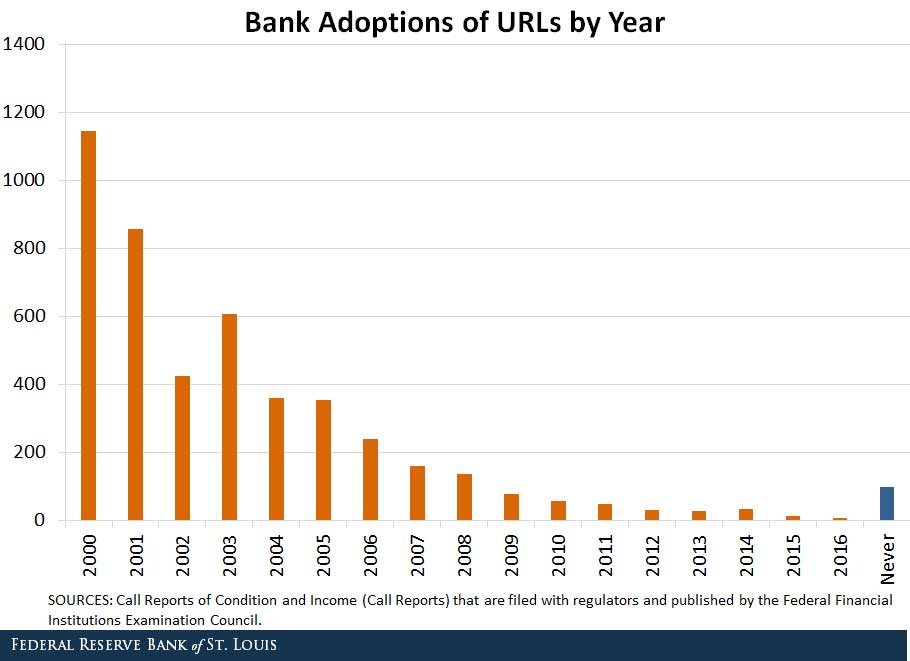from the St Louis Fed
Emerging technologies are expected to significantly change the banking industry. But not every bank will adopt changes at the same rate. Some will adopt quickly, some much later, and some not at all.

To get an idea of how quickly banks may adopt such new technologies – commonly referred to as “fintech” – members of the St. Louis Fed’s Supervision division examined how quickly banks adopted websites. As they wrote, “If the past is prologue, this may foretell how technological innovations in banking will be diffused in the future.”
Economist Drew Dahl, Senior Economist Andrew Meyer, and Senior Coordinator Neil Wiggins noted that 1999 was when banks were first required to disclose whether they had URLs. That year, about 35 percent of banks reported having a website.
The table below shows that banks with websites in 1999 tended to be larger and located in urban areas.
| URLs at Banks in 1999 | ||
|---|---|---|
| Â | Banks That Reported Having URLs |
Banks That Did Not Report Having URLs |
| Number | 3,035 | 5,487 |
| Average Assets (in Millions) | $1,510 | $202 |
| Percentage Urban | 58% | 42% |
| NOTES: “Available” indicates banks that reported a URL, and “Unavailable” indicates banks that did not. | ||
| SOURCE: Call Reports of Condition and Income (Call Reports) that are filed with regulators and published by the Federal Financial Institutions Examination Council. | ||
| Federal Reserve Bank of St. Louis | ||
Bank Adoptions of Websites
The authors noted that banks adopted websites rather quickly, with the majority having done so by 2001, as seen in the figure below.

The authors also noted other characteristics of banks and when they adopted websites:
- Banks in urban areas averaged 3.18 years for adopting websites, compared with 4.94 years for rural banks.
- Larger banks (those with more than $100 million in assets) adopted websites after an average of 2.56 years, compared with 4.97 years for smaller banks.

